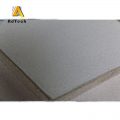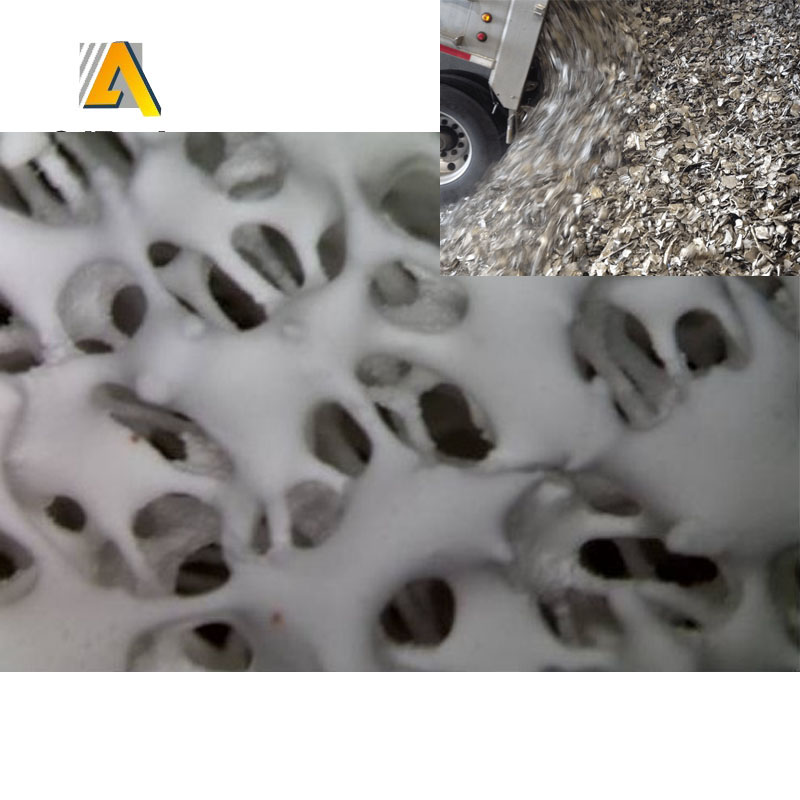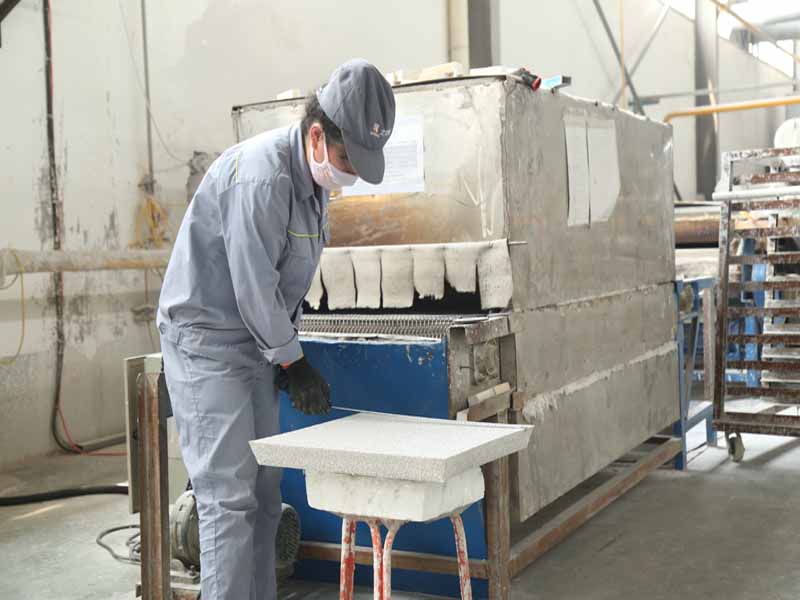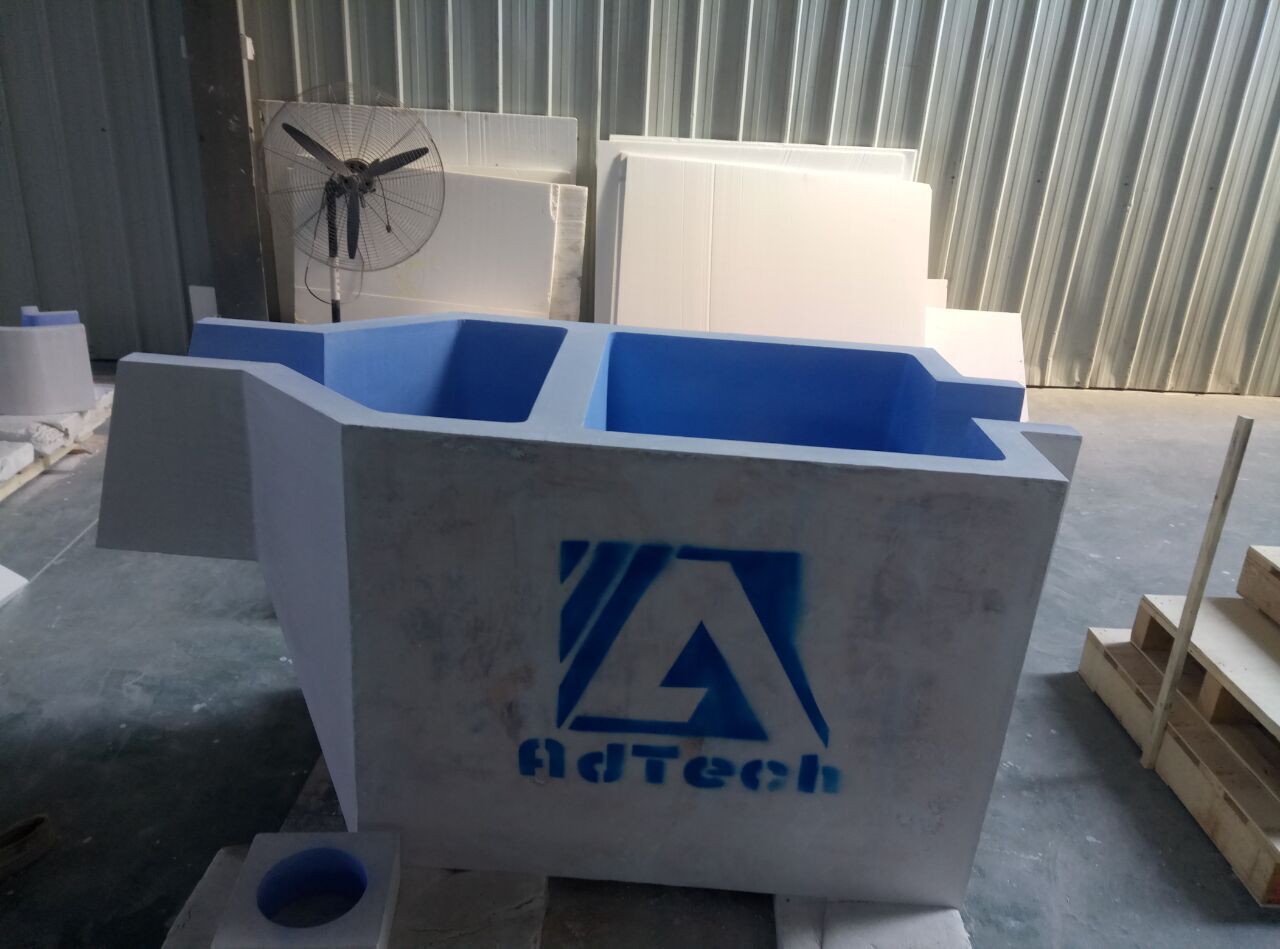Ceramic foam filter for aluminum
Ceramic foam filter for aluminum is designed to ensure high purity of blank casting of aluminum alloys at metallurgical plants.
Filters have a three-dimensional structure of interconnected pores that form a labyrinth with a minimum of blocked places on both working surfaces.
In this way, optimal conditions are created for the effective operation of all filtration mechanisms.
The chemical composition of Al2O3-based filter ceramics provides an efficient trapping of undesirable impurities, especially inclusions of a similar composition (oxide traps).
In addition to standard filter sizes, filter segments of various sizes and shapes can be supplied.
It is recommended to equip all types of filters with sealing or expansion tape, which ensures that the filter is firmly fixed in the correct position.
You may also be interested in
Ceramic foam filter for Aluminium(ZrO2) is designed for filtering aluminium, and aluminium alloys, where high reliability and chemical purity are required (aviation industry
Ceramic foam filter for aluminum
Ceramic foam filters are used in the metallurgical industry and foundry to clean metal melt from non-metallic inclusions and oxide films, which helps to eliminate many shortcomings, improve the quality of the metal, reduce the amount of scrap during casting and also solve other production problems.

Ceramic foam filter for aluminum provides:
Increasing the uniformity of the internal structure of the metal;
Improvement of mechanical properties;
Elimination of metallurgical imperfections (gas sinks, porosity, leaks);
Improving surface quality;
A significant improvement in the machinability of products, reducing the cost of their processing;
Decrease in quantity of marriage.
Filter application temperature – up to 1700 ° C (with short-term use, higher temperatures are also possible). To ensure optimal filter efficiency, they must be preheated.
Three types of ceramic foam filters are offered, which are made on the basis of:
aluminum oxide (for filtering aluminum at temperatures up to 1150 ° C);
zirconium dioxide (for filtering steel, as well as alloys based on nickel and cobalt, at temperatures up to 1700 ° C). Special application – casting of magnesium;
silicon carbide (for filtering ducile and ductile iron, as well as non-ferrous metals at temperatures up to 1420 ° C).
For particularly critical products, duplex filters can be used, the distinguishing feature of which is the combination of two types of porosity in one filter of a standard size: porosity PPI 10/30 with sizes from D 100 * 25 mm.
It is possible to use filters at various points of the foundry system: horizontally or vertically along the way, at the base of the gate or profit.
In addition, when casting, due to the three-dimensional structure of the filter, the metal flow is effectively stabilized, the form is filled more smoothly and evenly. Due to this, the deoxidation of the metal in the mold, as well as the erosion of the moldable mixture, is significantly reduced.





